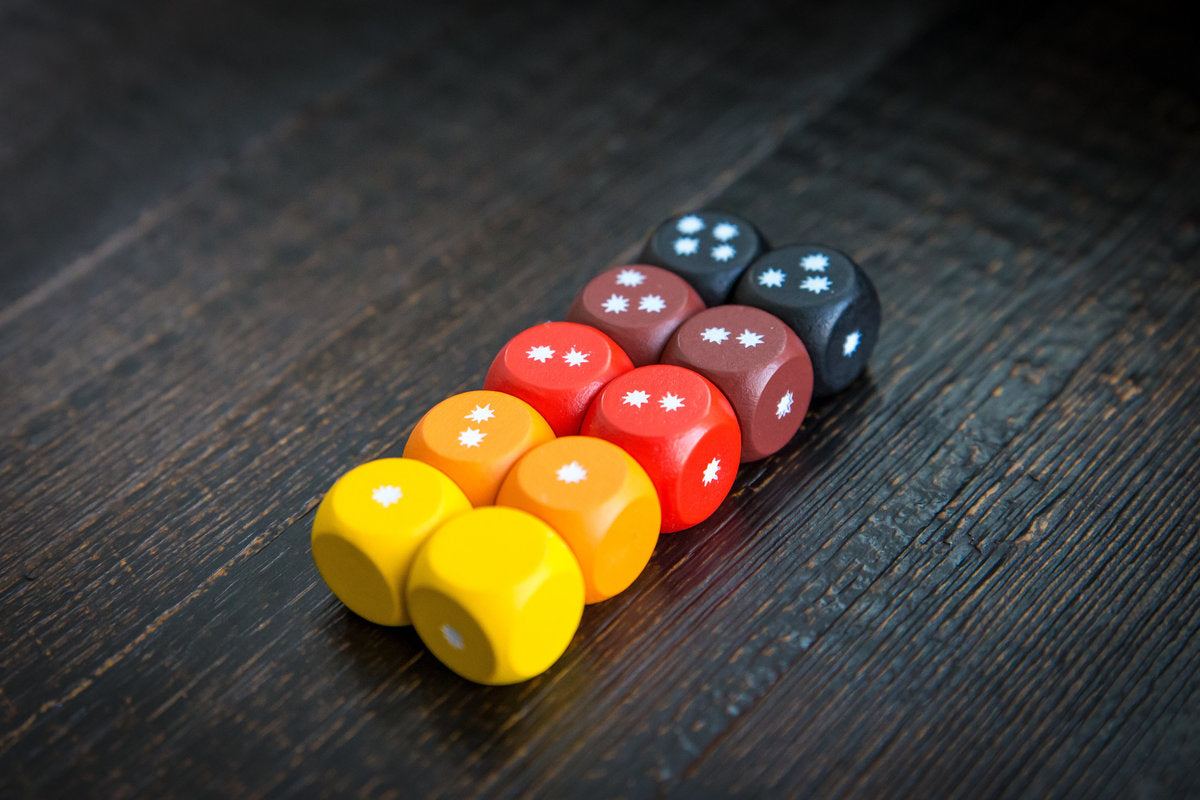Your Cart is Empty
Deluxe kickstarter for Salem, Tortuga, Deadwood launches April 30!
Deluxe kickstarter for Salem, Tortuga, Deadwood launches April 30!
The Shop
Add description, images, menus and links to your mega menu
A column with no settings can be used as a spacer
Link to your collections, sales and even external links
Add up to five columns
Add description, images, menus and links to your mega menu
About Us
A column with no settings can be used as a spacer
Link to your collections, sales and even external links
Add up to five columns

Why Every Board Game Needs a Little Luck
September 06, 2018 2 min read 0 Comments
Every card or board game, with few exceptions, has a component of luck involved. This luck varies from the dice rolls in Yahtzee to the infected cities in Pandemic to the colors of train cars flipped over in Ticket to Ride.
But why do people buy and enjoy games with luck? Wouldn’t true board-gamers be upset about getting a victory stolen because of a coin flip? Why, after a game of careful strategic planning and execution, are we ok with leaving our victory partly to chance?
Here at Facade Games, we have a few theories.
Hope
Luck gives even the worst player a margin of hope. Most of the time the person with the best strategy will win. But with a little bit of luck, there’s always a chance that you’ll draw the exact card you need, or roll three 12’s in a row to win. Nobody is ever quite out of it. Even with the worst strategy, you’ve got a 1% chance of coming away with a win. And without that hope, a big chunk of our board gaming friends wouldn’t play with us.
Serendipity
Psychology proves that whenever we “win” something there are little happy chemicals released in our brain. These chemicals can even be addictive. It’s why people play the lottery or gamble. Those tiny victories just beg to be fed. Whenever a luck element goes our way in a game, doesn’t it just feel good? Imagine you’re playing Settlers of Catan and you’re sitting on a 10. When the dice hit 10, isn’t the slight twinge of euphoria you feel real and palpable? Luck gives us these mini highs all throughout a game.
An Excuse
I had the fortune of growing up with a genius of a little brother. The “missed literally one point on the SAT” type of brother. Because of this, playing a game with no luck involved, such as chess, was a bit daunting. In chess you have no excuse if you lose. You have nothing to hide behind. Your wits failed against your opponent’s. In games with luck there is a built-in excuse. For the ultra-competitive player with a lot of pride, the possibility of losing gets a lot easier to swallow when you can blame it on the cards.
Game Variability
Tic tac toe might be the worst game invented. Besides the fact that the X always has the advantage, every game is the same. The situation never changes. With luck involved, the level of difficulty for each individual player will always fluctuate depending on the cards you start with, the cards you draw, the civilization you start with, etc. Luck is one of the things that brings people coming back to play for the 2nd, or 102nd time.
So the next time you lose because your opponent got lucky, don’t fret. Board-gaming has a lot to thank luck for, and chances are the dice will roll your way soon.



